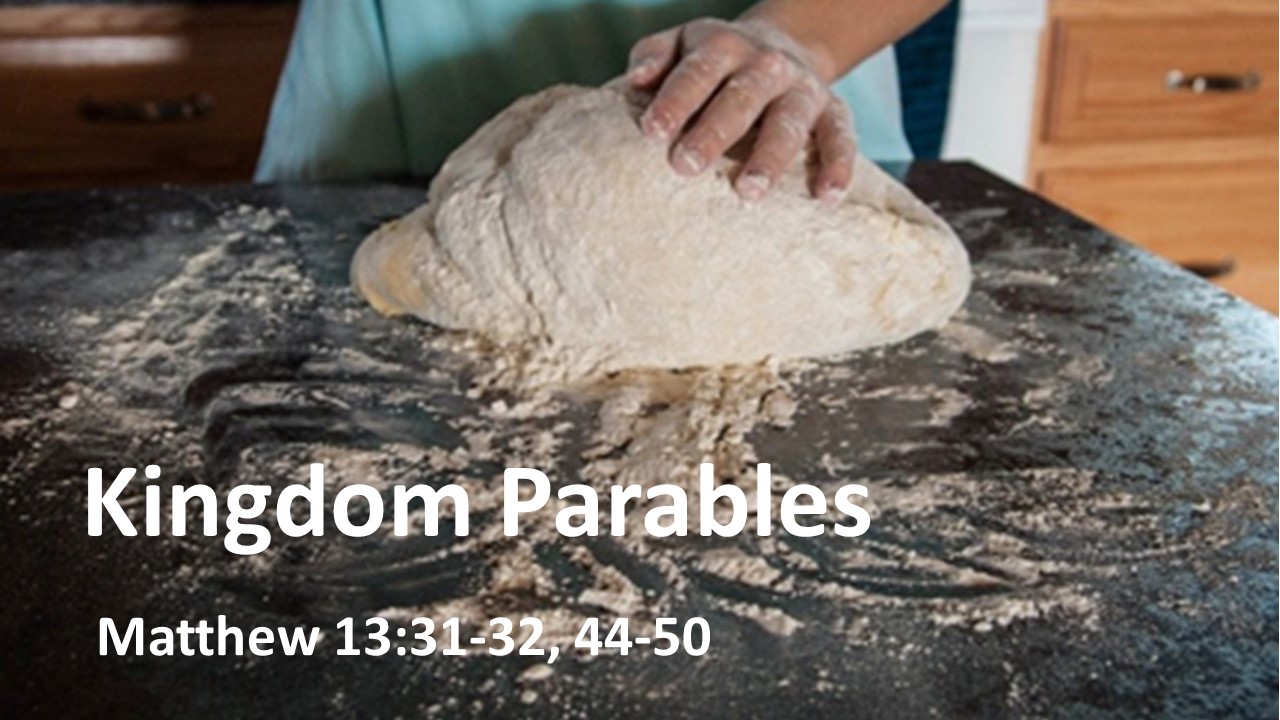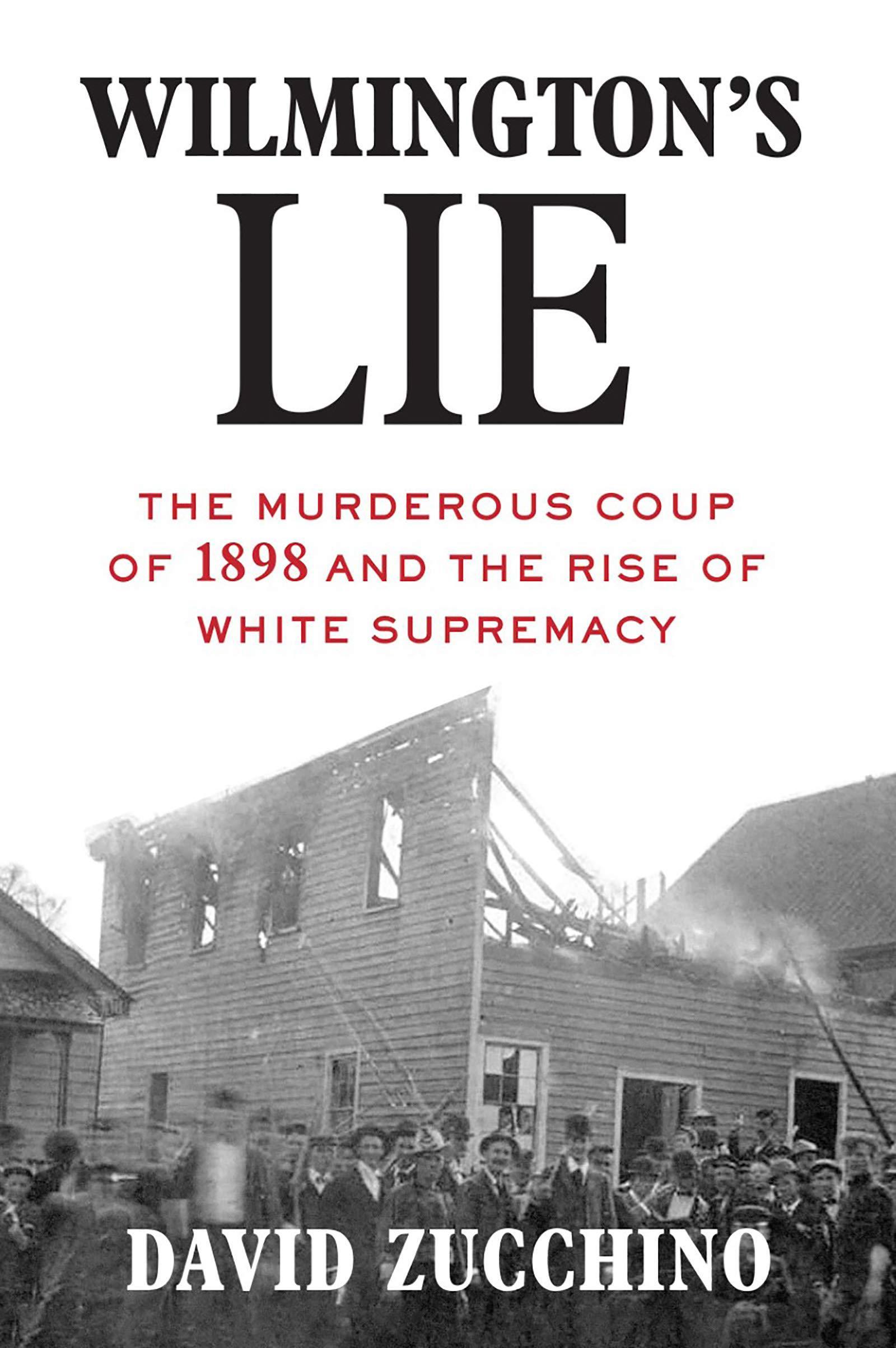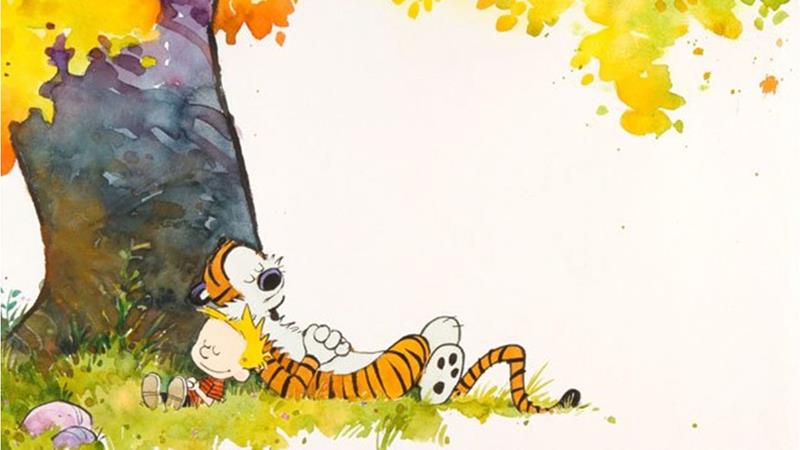 Jeff Garrison
Jeff Garrison
Skidaway Island Presbyterian Church
Matthew 13:31-33, 44-50
July 26, 2020
At beginning of Worship:
Today, we’re finishing our look at Jesus’ parables in Matthew 13. Over the past two weeks, we’ve looked at larger parables, about farming. Today, Jesus rapidly fires off five parables about the kingdom that come from a variety of experiences. In these stories, we learn of God’s work and our need to respond with full commitment. Even when it doesn’t feel like it, when we are overwhelmed by the world, God is at work. When we discover God’s work, we need to join in. My question for us today, “Where do we see God at work and how should we respond?
After reading the scripture (Matthew 13:31-33, 44-50)
One purpose of a parable is to use simple things in which people can relate to tell a story that has profound implications. Jesus’ audience hasn’t seen Disneyworld or Las Vegas, which are at best cheap imitations of what God can do,[1] so instead of our Savior explaining God’s kingdom as some wonderful place, he tells stories. In a way, Jesus hops from one metaphor to another, telling them things they might know. They understand yeast and seeds, valuable treasures, and fishing. Like Jesus, let me tell a couple of stories.
When I was in seminary, I took a year off from my regular studies to take a test drive of pastoring. First Presbyterian Church in Virginia City, Nevada offered me a yearlong contract, as a student, to be their pastor. Up until this point in my life, I had never been to that part of the country. I’d been to the West Coast, to Los Angeles and to San Francisco. I’d even been to Yosemite, but I had never been in that vast sagebrush ocean known as the Great Basin. I was nervous. Nevada had gambling. “What kind of heathens gamble,” I wondered. Back in the mid-80s, you didn’t have casinos weren’t ubiquitous.
My second concern was it being the desert. I’d always been around water. I asked a member of their committee, who had lived in North Carolina, what Virginia City is like. He said I’d find it a lot like North Carolina, with the hills covered with pines. I knew he was teasing, but I needed to check it out. One weekend, I flew to Reno. It was night when I landed and in darkness, I was picked up and we drove up to the Virginia City, which is a couple thousand feet higher and on the back of a mountain range from Reno. The next morning, I couldn’t wait to see what kind of world I was in. I rushed to a window, opened the blinds, and looked out, and shook my head. Yes, there were pine trees alright, but the tallest of them might had been 12 feet high. Not much larger than the mustard tree in Jesus’ story. In time, I would come to know that these pinion pines, like the mustard bush, teams with life. Stellar jays, magpies, wrens, bluebirds, all kinds of small rodents and, in summer during the heat of the day, perhaps a great basin rattler. God takes care of them all, just as God took care of me. I soon got over my shock and set out exploring.
We are surprised by God’s kingdom. Who’d think that a little seed, be it a mustard or a pinion pine seed (which is great in pesto, by the way) could make such a difference?
The second image from my past is yeast. As you may remember, I spent five years working in a wholesale bakery, starting out while in college. You know, it doesn’t take a lot of yeast to make a lot of bread. Now, we used 50-pound bags of yeast, but we also received our flour in railcars. It’d take a couple of cars a week to supply our flour needs, during which time we’d go through a pallet or two of yeast. The thing about yeast is that once it’s mixed in, you have a hard time controlling it. The yeast takes over and the dough continues to expand until the yeast is killed in the baking process. When things go smoothly, the plant ran like clockwork. But occasionally, something happened, such as a jam in the oven. Suddenly everything stops, except the yeast. By the time things are fixed, the proof box is a mess cause all that dough kept growing and rising until it couldn’t rise anymore. Dough would be on everything. We’d have to take steam pressure cleaners and wash every rack in the proof box and all the pans. It was a mess. Thankfully, this didn’t happen often, but it happened enough that kept us humble.
“The Kingdom of Heaven is like yeast that a woman takes and mixes with flour until all of it was leavened.” Think about this. Once she introduces the yeast, it’s out of her control. If there is something in the dough for the yeast to eat, it continues to grow.
What Jesus is telling us here is that the kingdom is dynamic. Once the gospel is introduced, it starts growing and there is no stopping it. Think about how fast the church is growing today in China, even as the Communist Party tries to stamp it out. The church is growing in Africa and in the former Soviet Union, in India and South America. But the Kingdom is not only out there, on the mission field. It is also here in our congregation and even right here inside each of us.
The Kingdom is like a bit of yeast that can transform flour into a voluminous loaf, or a seed that can grow into a tree. Think about this for a moment. There are just a few things a baker can do to enhance the yeast. You keep it at the right temperature, feed it with sugar, and so forth… Likewise there are things we can do to enhance the growth of a tree such as watering and fertilizing. But ultimately, the yeast and the seed are not our doing. Their success, as both parables attest, belong to the hands of the one who controls life. These parables point to God’s involvement, to God doing something in our world and in our individual lives which we, by ourselves, cannot achieve.
At a time like this, with the pandemic and violence in the streets, we may wonder where God is and what God is doing. These stories remind us that we might not see God showing up in major ways, for that’s not how God works. Jesus was born among the animals in the poor hamlet in a far corner of the empire. A tablespoon of yeast or the seed that you can barely see can bring about great change. The change God brings into the world, into the kingdom, may not make the headlines of the New York Times, the Savannah Morning News, or even the Skinnie. But it’s here, alive, and working.
Jesus addresses the parable of the mustard seed and of yeast to a crowd of people. He wants everyone to know that God was doing something exciting and new in the world. Jesus wants to make it clear to everyone that God’s spirit is available; that if they would just open themselves up to the Kingdom which he’s ushering in, God could do wonderful things through their lives. The promise set forth in these parables still apply today.
After addressing the crowd, Jesus and the disciples slip away into a house. There the disciples questioned him concerning the meaning of parables. This gives Jesus an opportunity to tell more parables. The kingdom of heaven is like treasure hidden in a field, the merchant finding a valuable pearl, or a net cast into the sea.
Let’s think about these parables in relationship to the first two parables told to the masses. In the first set, Jesus suggest God’s action. As with the yeast or mustard seed, God is doing something in the world that we as humans cannot do. God is forgiving and creating new beings out of the old. It’s all God’s doing. However, in the parable of the hidden treasure and the valuable pearl, Jesus suggests we also act. The one who buys a field or buys the pearl does so because they want desperately to obtain the treasure or pearl. It’s the same way with God’s kingdom. When we experience a just a taste of it, we’re going to want it so badly that we’ll give up whatever in order to have it. This is the Calvinist doctrine of irresistible grace. If we experience the kingdom, we’re going to make it the number one priority in our lives. We need that kind of passion for God! Such passion will strengthen the church and further God’s work in the world. Now, parables can only be taken so far. No, unlike the person finding the treasure, we can’t buy ourselves a spot in the kingdom. But believe this: if we could, we should be willing to pay top dollar.
Jesus concludes these parables with one comparing the kingdom with a net which catches fishes, but in the end the good fish are separated from the bad. This ending parable is, in many ways, different from the others. Instead of being directed at the crowd or the disciples, it seems to be intended for the church. The parable is also the only one of this group which talks about the Kingdom in the future. The others four emphasize the beginning of the kingdom, here and now. Furthermore, this parable is about judgement. The fish which do not measure up are thrown out. However, it would be wrong to interpret ourselves as the discriminating fishermen. That task belongs to God. The familiar ring, which Jesus has already instructed, comes to mind: “Judge not, lest ye be judged.”[2]
There you have it. Two parables about God growing the kingdom, two about the value of the kingdom, and a warning… You know, Jesus doesn’t give us a clear picture of heaven here or anywhere in the Bible. He doesn’t talk about it as a place.[3] In The Divine Conspiracy, Dallas Willard speaks of a kingdom as a place where one person’s influence determines what will happen.[4] This kingdom is where Jesus’ influence is a living presence. The kingdom of heaven is not someplace we strive to get to; instead, it’s something which starts inside each of us when we open our lives to God and invite Jesus in…. Amen.
©2020
Resources and References:
Bruner, Frederick Dale, The Christbook: Matthew 1-12 (Grand Rapids, MI:
Eerdmans, 2004).
Duffield, Jill, “Looking into the Lectionary,” The Presbyterian Outlook (Online edition, July 20, 2020). https://pres-outlook.org/2020/07/8th-sunday-after-pentecost-july-26-2020/
Gundry, Robert H., Matthew: A Commentary on His Literary and Theological Art (Grand Rapids, MI: Eerdmans, 1982.
Hare, Douglas R. A., Matthew: Interpretation, A Commentary for Teaching and Preaching (Louisville: John Knox Press, 1992).
Hoezee, Scott, Proper 12A (July 20, 2020), from Calvin Theological Seminary’s “Center for Excellence in Preaching. https://cep.calvinseminary.edu/sermon-starters/proper-12a-2/?type=the_lectionary_gospel
[1] I’ve always been struck by Steve Wynn, one of the Las Vegas developers, often quoted (and blasphemous) quip about Vegas being how God would have done things if he had money.
[2][2] Matthew 7:1.
[3] In Revelation 21 & 22, John has a vision of a “new heaven and a new earth,” which is place, but Jesus keeps his kingdom talk to metaphors and ideas about what God can and is doing in the world.
[4] Dallas Willard, The Divine Conspiracy, as referred to by Scott Hoezee in his notes on this passage. See https://cep.calvinseminary.edu/sermon-starters/proper-12a-2/?type=the_lectionary_gospel

 David Zucchino, Wilmington’s Lie: The Murderous Coup of 1898 and the Rise of White Supremacy (New York: Atlantic Monthly Press, 2020), 426 pages including notes, bibliography, and index along with 12 additional pages of prints.
David Zucchino, Wilmington’s Lie: The Murderous Coup of 1898 and the Rise of White Supremacy (New York: Atlantic Monthly Press, 2020), 426 pages including notes, bibliography, and index along with 12 additional pages of prints.
 Jeff Garrison
Jeff Garrison Jeff Garrison
Jeff Garrison Having prepared the way, Calvin feels he can sell folks on his expert advice and encouragement. He’s on to something. We long for satisfaction and we expect someone to show us where to find it.
Having prepared the way, Calvin feels he can sell folks on his expert advice and encouragement. He’s on to something. We long for satisfaction and we expect someone to show us where to find it.